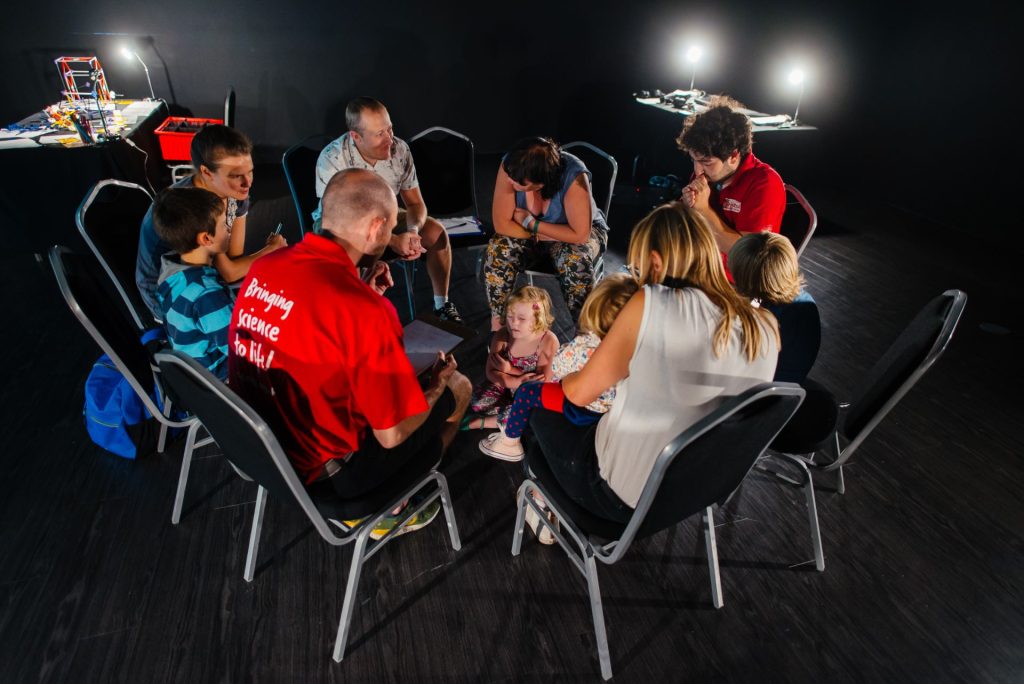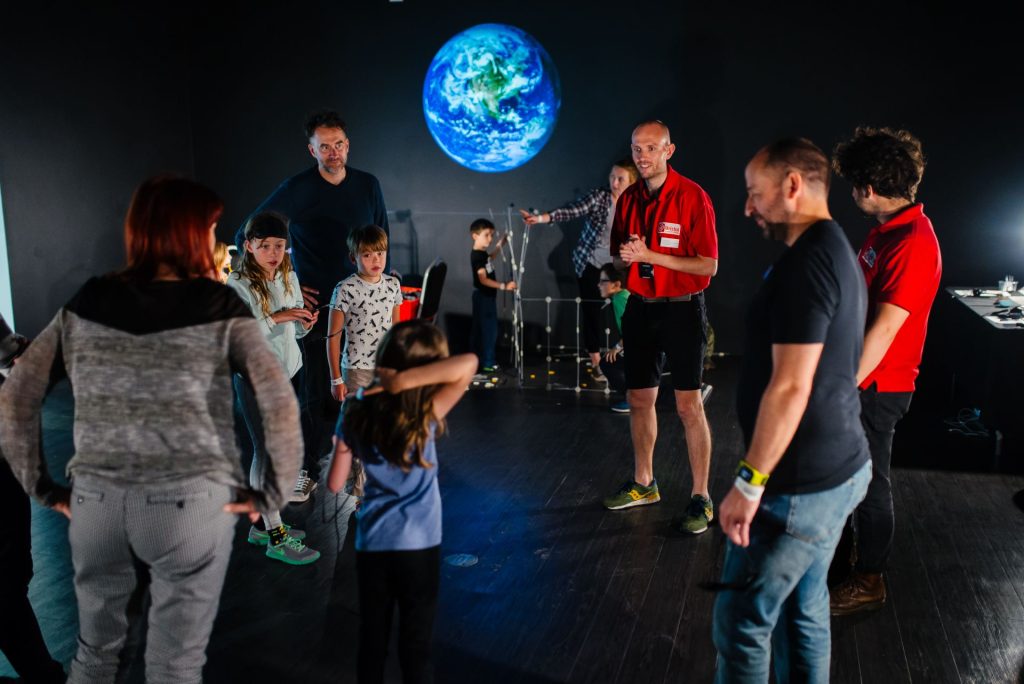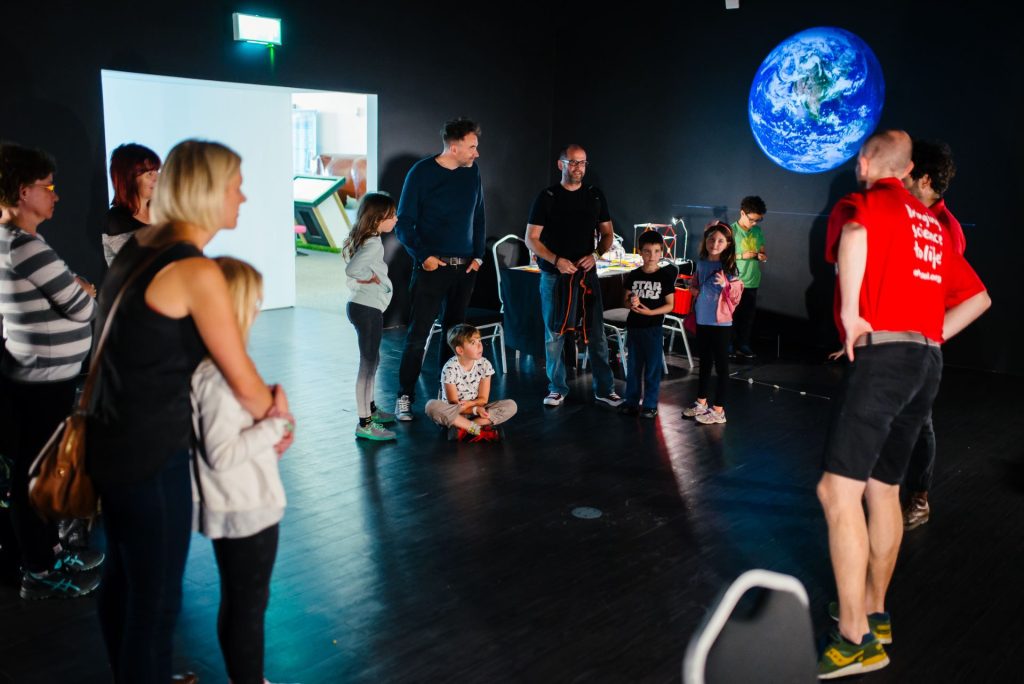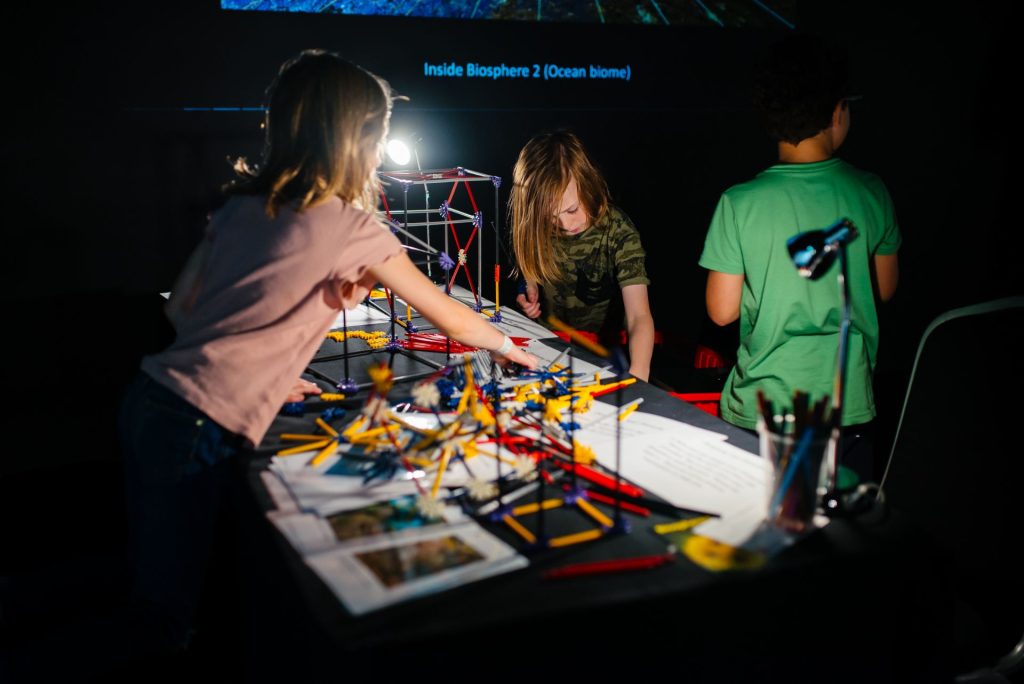Biosphere IV
How might live performance offer an interactive and unconventional way to explore how human living might transform when significant environmental change occurs? What role does technology play in that transformation?

Biospheres pose not only scientific questions (is a functioning biosphere possible? And what would it contain?), but significant humanities questions: Why has the idea of a biosphere captured imaginations of the future? Does it offer insight into present understandings of human-environment relations, and living with uncertainty?
Creative engineering intersections between nature and technology seem imperative for navigating our increasing environmental uncertainty. How might live performance (where we observe humans living in a biosphere) offer an interactive and unconventional way to explore how human living might transform when significant environmental change occurs? What role does technology play in that transformation?
What did the project involve?
Biosphere IV was an evolving performative exploration of living with the uncertainty of climate change. It was inspired by the Biosphere II experiment (Arizona desert, 1990s), in which humans lived in giant biomes to investigate whether an enclosed, artificially-constructed biosphere might sustain organic/human life. If humans colonised space, could human life be sustained, extra-terrestrially? Might this also be a way of living on Earth in the near future?
To answers these questions the project focused on the collaborative, interdisciplinary development of a prototype theatre performance, which explored:
- The lived experience of existing in an artificially-constructed biological life support system
- The embodied experience of adapting as micro-climatic conditions change.
- How a performance actively engages with cultural, humanities-based dialogues surrounding the representation of natural life within art.
The project sought to explore a creative intersection between research into, and the public perception of, future environmental living. Two workshops bringing together the co-investigators and other interested researchers provided space for thinking through concepts and core research questions underpinning the performance. Then, a week of creative participation activities in exhibition at We the Curious allowed the performers to explore how, when we pose research questions to a public audience concerning the future of their own lives and planet, these creative responses (via drawing, sculpture, play) can dynamically feed into a performance research project. The workshops and activity week nurtured the final outcome: a prototype Biosphere IV performance at We the Curious.
Who are the team and what do they bring?
- Marianna Dudley (History, University of Bristol) is part of the Environmental Humanities Research cluster and an environmental historian of modern Britain. Her work explores environmental change and its impacts on communities, places, and politics.
- Franklin Ginn (Geographical Science, University of Bristol) is part of the Environmental Humanities Research cluster. His research interests are in the cultures, politics and histories of nature, and philosophical questions concerning the Anthropocene and plant life.
- Tom Bailey (The Mechanical Animal Corporation) is a Bristol-based theatre maker creating work through his company, The Mechanical Animal Corporation. He has a strong history of academic/research-based theatre collaborations (Leverhulme Artist in Residence at UCL/ Wellcome Trust Arts Award).
- Rowan Evans (The Mechanical Animal Corporation) is a poet, composer and sound artist. Rowan writes and produces music for theatre, performance, film and installation, as well as commissions for M-Shed, We the Curious, Illuminate Plymouth and Shoreditch Town Hall Basement.
- Anna Starkey (We the Curious) is creative director of We the Curious. She has looked after the content and exhibitions and led the transformation of a science centre into a cultural venue dedicated to building a culture of curiosity. This was about removing boundaries between science and culture, inviting everyone to ask questions, opening up science for everyone to be able to participate, and re-imagining the distribution of power and knowledge.
- Richard Pancoast (Cabot Institute) is an organic geochemist, biogeochemist and palaeoclimatologist. From 2013 to 2018, he was Director of the interdisciplinary University of Bristol Cabot Institute which explores how we depend on and shape our planet.
- Andrew Kelly (Bristol Festival of Ideas) has been the creative programmer and director at Bristol Ideas overseeing a wide array of projects. He has written books on subjects ranging from film and cinema to aviation and Bristol’s rich cultural history.
- Melissa Sterry (Bionic City) is a design scientist who’s interests revolve around crafting highly creative solutions to complex and critical issues faced by people and planet. Her expertise spans myriad disciplines, sectors, cultures, and communities, she attempts to bring a 360° perspective to problems faced by industry, commerce, academia, and society at large.
What were the results?
There were four primary outcomes from the project:
1) Prototype exploratory performance (July 2018):
The core output was the development of a collaborative prototype performance where 2 performers exist within a biosphere, exploring the embodied changes experienced under simulated climatic shifts. This was rehearsed, with regular dynamic input from co-researchers, across 4 weeks, exploring:
- The lived experience inside an enclosed life system, and continual bodily adaptation to climate.
- A prototype design – how biomimetic design principles might help us explore new, nature-inspired environments for living in the Anthropocene.
2) A week of creative participatory activities for families (sculpture, painting, workshops) during exhibition at We the Curious (May 2018), which explored:
- What is a biosphere?
- If you could design an environment for future living, what would that be?




3) 2 critical interdisciplinary workshops, open to academics and students, at Bristol University (March/April 2018), these investigated:
- What can biospheres tell us about living with a precarious planet, and the dreams of off-world colonisation?
- What the data doesn’t show: How can performance be critical research tool in environmental studies?
4) A panel talk during Bristol Festival of Ideas
Moreover, Tom Bailey gave a talk at the Pervasive Media Studio’s Lunchtime Talk called ‘Biosphere IV: Re-imagining the future of nature‘
Melissa Sterry, scientific advisor to Biosphere IV, began a blog documenting the project called ‘Biosphere IV‘

